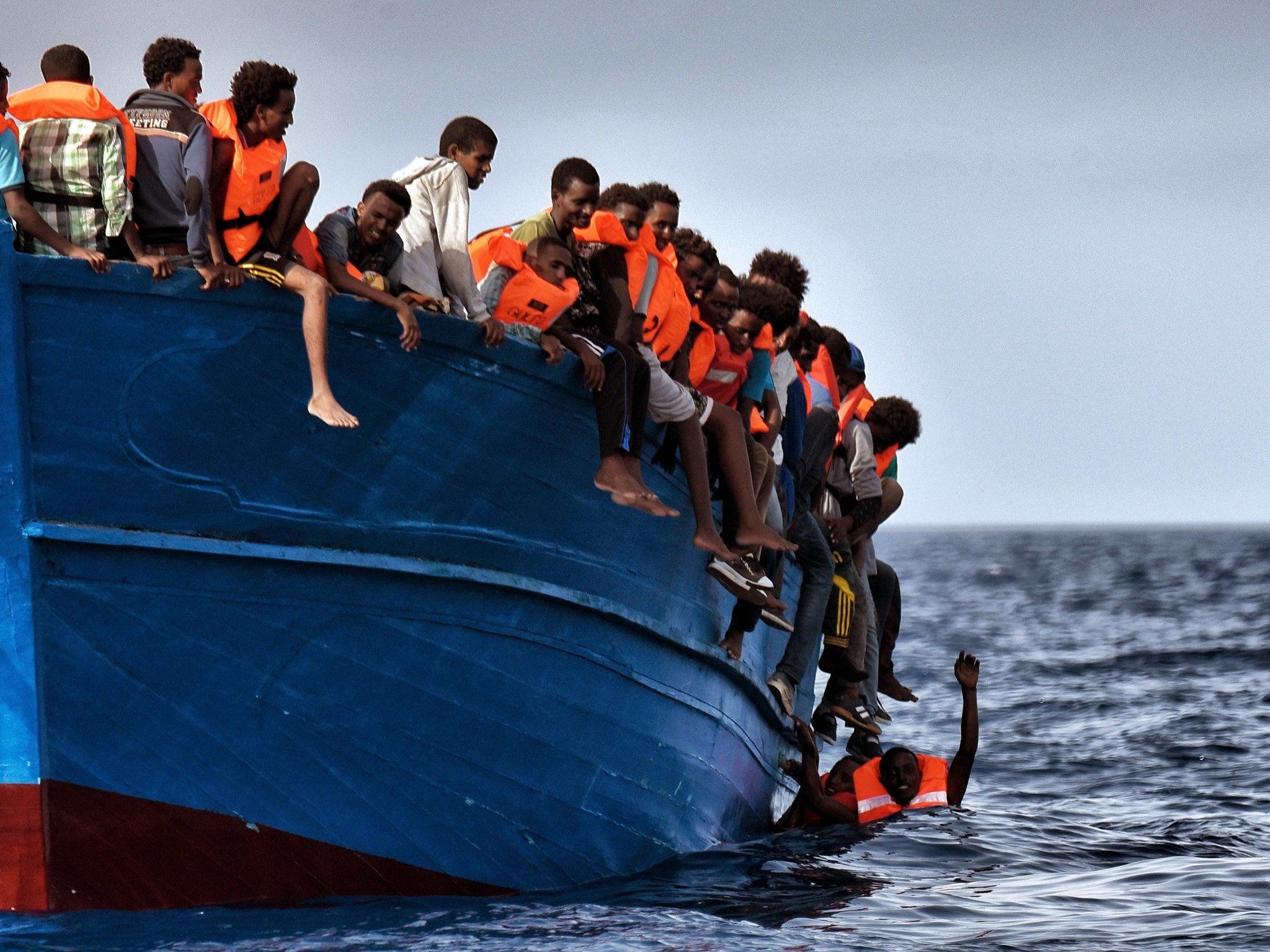100 people feared dead in Mediterranean taking toll for 2016 to 5,000 – the highest ever
Two dinghies carrying hundreds of refugees sink

100 refugees and migrants are feared to have drowned off the coast of Italy after two boats sunk, taking the number of migrants who have died in the Mediterranean this year above 5,000 – the highest annual total yet.
The drownings reportedly occurred after two rubber dinghies collapsed on Thursday, tipping hundreds of refugees into the sea. Both vessels are believed to have been full of people: the first was carrying up to 140 and the second around 80, according to the United Nations High Commissioner for Refugees (UNHCR).
Only 143 of the apparent 260 refugees and migrants were rescued and survived.
Elsewhere on the same day, the Italian coastguard rescued 175 people and recovered eight bodies over a total of four operations in the central Mediterranean near Sicily.
It means more refugees have drowned in the Mediterranean trying to reach Europe this year than ever before.
UNHCR spokesman William Spindler said: “This situation highlights the urgent need for States to increase pathways for admission of refugees, such as resettlement, private sponsorship, family reunification and student scholarship schemes, among others, so they do not have to resort to dangerous journeys and the use of smugglers.
“The causes for the alarming increase in deaths this year are multiple but appear to be related to the declining quality of the vessels used by people smugglers, the vagaries of the weather and the tactics used by smugglers to avoid detection by the authorities. These include sending large numbers of embarkations simultaneously, which makes the work of rescuers more difficult.”
An average of 14 people have died every day this year in the Mediterranean attempting to reach Europe from North Africa or the Middle East.
People smugglers continue to cram desperate migrants into boats heading to Europe, despite dangerous weather conditions and the huge number of people that have already died trying to make the crossing.
Those rescued from boats off Europe’s shores are taken to processing and detention centres in Italy and Greece where their applications for asylum are processed. The centres are increasingly crowded and charities have warned of dire conditions.
Campaigners have claimed EU countries’ strict immigration policies are contributing to the deaths and called on governments to allow more refugees into their nations.
The death toll in 2016 is a significant rise on last year, when 3,771 casualties were recorded in the Mediterranean.
Join our commenting forum
Join thought-provoking conversations, follow other Independent readers and see their replies
Comments
Bookmark popover
Removed from bookmarks